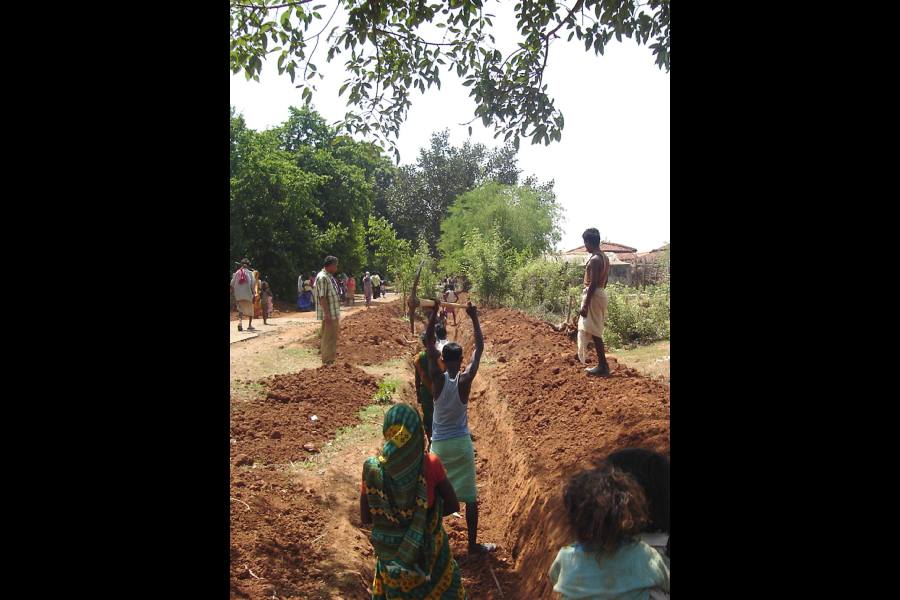The apex monitoring and advisory body for projects carried out under the MGNREGA has been defunct for more than three years even as rural workers struggle against mass-scale job card deletions.
The ministry of rural development has not set up the Central Employment Guarantee Council (CEGC) since May 2021.
The CEGC is supposed to be headed by the minister of rural development and is to have up to 15 members from the panchayati raj institutions, organisations of workers and disadvantaged groups.
Ashis Ranjan, an activist associated with the NREGA Sangharsh Morcha (NSM), a civil society organisation, said the prolonged delay in the reconstitution of the CEGC only suggests that the government does not want to hear any criticism.
“The CEGC members give feedback on the ground situation, such as any difficulty faced by workers. The government does not want to hear any criticism about the programme,” he said.
Ranjan said that the CEGC has a critical role in ensuring the smooth implementation of the job scheme. It is empowered to conduct an evaluation of the scheme and review the redressal mechanism of workers’ issues and suggest changes.
Ranjan said that the recommendations made by the CEGC are not binding on the government but are significant since it is headed by the minister.
He said the government had introduced the National Mobile Monitoring Service App through which the attendance of workers is registered online. In many places, the attendance is not registered because of poor Internet.
The NSM, during its recent meeting with rural development minister Shivraj Singh Chouhan, demanded a reconstitution of the CEGC, Ranjan said.
The CEGC’s role has become more relevant after the mass deletion of job-card holders from the MGNREGA database by the government in the last three years claiming that they were routine updates to weed out duplicate or fake cards.
The state governments deleted over 5 crore job cards in 2022-23, far higher than the yearly average of 1 crore to 1.5 crore deletions.
From September 1 to 7, the NSM carried out nationwide mass postcards and signature campaigns against the deletions and for stopping MGNREGA funds to Bengal.
“The CEGC is a statutory body for reviewing and advising on MGNREGA implementation. Between 2006 and 2011, the CEGC was making meaningful contributions on various issues such as wage revision and social audit. Gradually its role was trivialised by setting up separate expert panels on key issues. This government has gone a step further by not constituting the CEGC,” he said.
An email was sent to rural development secretary Sailesh Kumar Singh to understand his perspective on why the CEGC has not been set up. His response is awaited.











